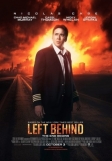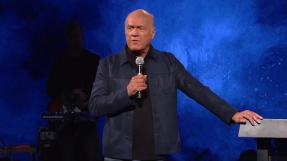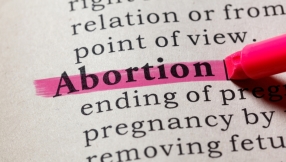
You can't understand American evangelicalism without getting to grips with End Times theology, according to a new book by Washington State University professor Matthew Avery Sutton.
In American Apocalypse: A History of Modern Evangelicalism, Sutton argues that particular readings of the apocalyptic sections of the Bible such as the book of Revelation led evangelicals to be suspicious of government.
Interviewed by Daniel Silliman for Salon.com, he said: "My argument in a nutshell is that the apocalyptic theology that developed in the 1880s and 1890s led radical evangelicals to the conclusion that all nations are going to concede their power in the End Times to a totalitarian political leader who is going to be the Antichrist. If you believe you're living in the last days and you believe you're moving towards that event, you're going to be very suspicious and sceptical of anything that seems to undermine individual rights and individual liberties, and anything that is going to give more power to the state."
Hence, he argued, evangelical opposition to the 'Obamacare' expansion of health benefits to large numbers of uninsured people.
Evangelical belief that they were in the End Times and that Jesus' return was imminent, he said, was what set them aside from liberal Protestants, rather than miracles or biblical inspiration. "All those matter, all of those things do set them apart, but they don't affect how they live their daily lives. The one thing that affects how they live their daily lives is that they believe we are moving towards the End Times, the rise of the Antichrist, towards a great tribulation and a horrific human holocaust."
To believe the world is rapidly moving to its end, he said, "affects how you vote, how you're going to structure your education, how you understand the economy, how you're going to treat global events, how you're going to look at organisations like the United Nations".
Key to End Times theology is that believers would be 'raptured', caught up out of the world before the Antichrist took control for a period of time called the 'Tribulation', to be followed by Armageddon and the victory of Christ.
However, Sutton said, it was incorrect to assume that because the world was moving quickly towards an end, Christians would not engage in social activism. "In fact, they've done just the opposite," he said. "Their apocalyptic theology makes them more active not less."
The biblical warrant for activism, he said, was the parable of the talents, in which those who had not used their gifts wisely were condemned at the return of the king. Sutton said: "For fundamentalists and evangelicals, the point here is that God has given them talents. He's gone away, he's coming back, he's coming back soon, and he's going to ask what you've done with your talents."
This meant that "far more than many other Christians, they believe they have a responsibility to act as vehemently, as radically, as urgently as possible".
He referred to the apocalyptic teaching of writers such as Hal Lindsey and Tim LaHaye. While evangelicalism had fractured since their heyday, he said, "the apocalyptic never leaves. It's still there, that's where the polls come back. It's now assumed by hundreds of millions of Americans that the rapture is a real thing and that Jesus is coming back.
"It's a genius theology, because it allows people to look at very diverse, very troubling, very dark contemporary events and put them in a context; to say, 'I know why this is happening, and it's going to turn out OK. We are going to be OK.' It gives them peace, comfort and hope in a world that often offers none of those things."















